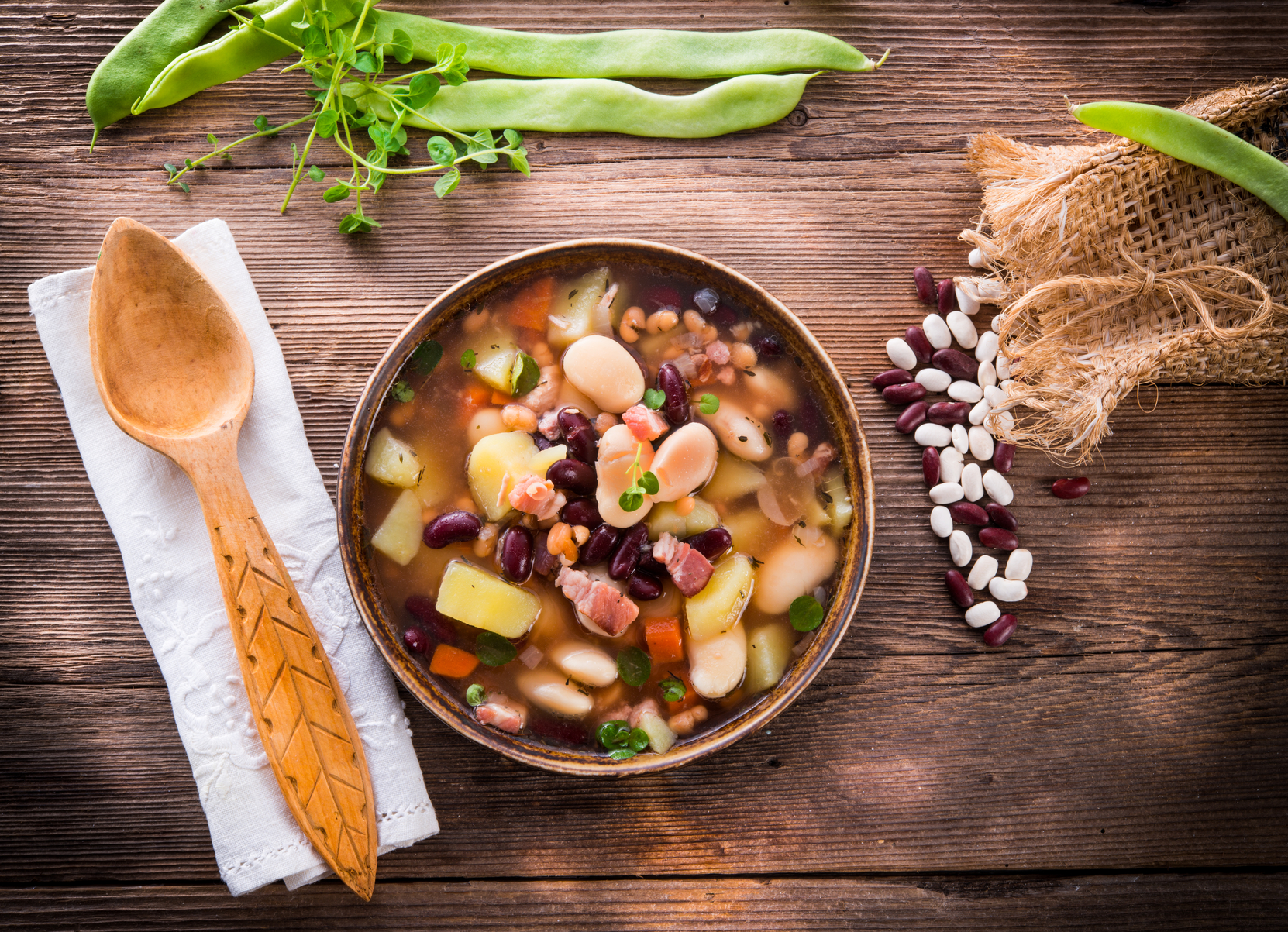If you have PCOS, it may seem daunting to start preparing for pregnancy. How long will it take? Will it even happen? It does differ from person to person, but for most women with PCOS, the question is not if they’ll ever get pregnant but when and what treatment will work best.
There are three main areas you can target to improve your fertility and chances of conceiving: lifestyle, diet, and medication/supplements. It will probably be a combination of tips from all three that will give you the most success.
Lifestyle Changes
Try Fertility Tracking
Tracking cycles is a good idea for any woman preparing for pregnancy, but especially if you have irregular cycles because of PCOS. With PCOS, you might not ovulate every month, so doing something like tracking your basal body temperature takes the guesswork out of the equation. If you have a cycle between 28-60 days, fertility charting may be an effective tactic. Also, if you’re using any medication like Metformin or Clomid, tracking your cycles is helpful because you can then track the effectiveness of the treatment plan.
Here’s how fertility tracking works. During the first half of the menstrual cycle (menstruation-ovulation) your body temperature is slightly lower. After ovulation, there is a spike in body temperature because of the release of progesterone. If you’d like to track your basal body temperature, do so every morning around the same time so there’s consistency in your recordings. Then make sure you write down your temperature in a notebook or in a charting app on your phone.
Another way to track your fertility is through tracking your cervical mucus. When preparing for ovulation, cervical mucus has the consistency of an egg white. Keeping an eye out for egg white consistency and tracking your basal body temperature will give you a good idea when you’re ovulating, making trying to conceive much easier.
Get Enough Sleep
Sleep is important for any situation, whether you’re preparing for pregnancy or not. Getting enough sleep helps with your mood, metabolism, and also in the regulation of hormones involved with ovulation and reproduction. Sleep is another piece of the puzzle in regulating PCOS and having a healthy lifestyle.
It sometimes can be hard to get enough sleep. You say you’ll go to bed early, but that next episode on Netflix looks so interesting! Sleep affects all aspects of your overall health, so you owe it to yourself to go to bed a bit earlier so you can have a soothing bedtime routine and feel refreshed in the morning. The balance it brings to your hormones just might improve your chances of conceiving.
Stop Smoking
Whether you’re trying to get pregnant or not, you aren’t doing yourself any favors if you’re smoking with PCOS. Smoking can increase the risks of hypertension and heart disease, which is already a risk factor with PCOS. Related to pregnancy, smoking and illegal drug use has been linked to premature delivery, miscarriage, and birth defects.
When you have a habit, especially an addicting one like smoking, it’s not recommended that you quit suddenly. Going cold-turkey increases the risk of withdrawal symptoms and relapse. Instead, gradually reduce how much you’re smoking so by the time you do conceive, you’ll be smoke-free. You can always consult your doctor or a support group if you’re finding it hard to quit smoking.
Cut Down on Caffeine and Alcohol
You absolutely shouldn’t be drinking when pregnant because of the harm it does to the fetus, and you should also cut down on caffeine. Reducing your intake before you get pregnant will make the transition easier.
In fact, cutting down on drinking is helpful for PCOS in general, not just for preparing for pregnancy. Reducing alcohol intake can help with weight loss, which can help with balancing hormones and getting blood sugar levels in check. Alcohol contains a lot of empty calories: having a couple drinks a night is the same as eating a whole other meal! Alcohol also stimulates the appetite, so you’re more likely to indulge in some late-night snacking.
Alcohol affects the way your body absorbs estrogen. An increased blood estrogen level means the estrogen to progesterone ratio will be even worse. It’s important to have balanced hormones if you’re trying to regulate your cycles for pregnancy, so it’s best to reduce or cut out alcohol when preparing for pregnancy.
Exercise Regularly
If you have PCOS, you’re more likely to become overweight and are also at risk for things like diabetes and hypertension. As such, it’s a good idea to stay active to burn off extra calories, improve your heart health, and to help combat your insulin resistance. Women who exercise before and during pregnancy can actually have an easier labor and reduced recovery time postpartum, so finding a way to be active a couple times a week will benefit your overall health and especially your health while pregnant.
Maintain or Reduce your Weight
If you are significantly overweight, it can put you at risk for some unpleasant pregnancy complications such as preeclampsia, gestational diabetes, preterm labor, and even infertility. Women with PCOS are already at a higher risk of being overweight, so it’s important to be diligent with your diet and fitness efforts, especially if you’re preparing for pregnancy.
Diet
Depending on who you speak to or where you’re searching on the internet, everyone has an opinion on the best PCOS diet. Some think that something like paleo or keto are the best options, while others praise low-fat diets instead. While any of these diets may be beneficial, you need to listen to your body and comfort level. A diet full of foods you hate will not be a diet you stay on very long. It’s important you take general guidelines for healthy eating and adapt them so you can develop consistency.
Here are a couple tips below for a PCOS-friendly diet that can be used with other regimens if you require.
Eat low-G.I. Carbs
Not all carbs are created equal. It’s best when preparing for pregnancy to switch so you’re eating carbs that have a low Glycemic Index. Low GI carbs include things like most fruits, and non-starchy vegetables and legumes. Eating something like some couscous instead of a muffin actually helps keep your blood sugar levels more consistent throughout the day. Keeping your blood sugars under control will maintain your energy and mood, preventing overeating, which will help with weight loss.
Losing even 5-10% of your total body weight can be enough to restore cycles and improve chances of conceiving, so watching what types of carbs you’re consuming can actually make a big difference.
Consume more plant-based protein
Although adult women do not need huge amounts of protein as part of a balanced diet, consider making some of that protein plant-based. The benefit of plant-based protein is that it helps you avoid estrogen in food like beef. Estrogen levels can either be too high or too low with PCOS, so getting estrogen from strange sources such as from your meat can contribute to imbalanced hormones.
There is estrogen in animal products because animals like cows are given hormones to increase yield and production. When you eat meat, you end up getting some of those hormones whether you want them or not. Although you don’t have to completely cut out meat, consider substituting some meat for something like lentils or quinoa so you’re getting less estrogen from animal products.
Eat more monounsaturated fats and less trans fats
Just as there are healthier choices of carbs, there are healthier choices of fats too. It’s better to eat more monounsaturated fats found in nuts, seeds, and avocados than trans fats found in a lot of processed foods. Trans fats are made when liquid oils are processed in a method called partial hydrogenation to harden them. They’re hard on the body and aren’t really adding anything to a healthy, balanced diet. Something like a handful of trail mix or some guacamole though, perfect!
Supplements and Medication
Take a Multivitamin
Even if you make all the necessary changes so you have a PCOS-friendly diet, it still might be hard to get all the nutrients you need. Taking a multivitamin can help make up for what you’re not getting in your diet. There are some vitamins and minerals that are of particular importance if you have PCOS and are preparing for pregnancy.
Chromium
Chromium, which can be found in foods like whole grains, broccoli, or green beans, is useful for digesting and metabolizing glucose, and thus getting your blood sugars in check. It can also improve the body’s sensitivity to insulin.
Vitamin D
You can get your vitamin D from the sun, or you can take it as part of a supplement, especially during the dark winter months. Vitamin D is important for combating insulin resistance, promoting breast health, and improving mood. It can also help with weight loss, which is useful for getting hormones in balance and improving fertility. Making sure you’re getting enough vitamin D and calcium in your diet can help regulate menstrual cycles and improve the number of mature follicles in your ovaries.
B Vitamins
B vitamins are useful for menstrual health. A shortage of B6 can actually lead to an imbalance of progesterone, which is an essential hormone for the menstrual cycle. If you don’t get enough B6, you may have irregular menstrual cycles, which can make it that much harder when trying to conceive. Taking B vitamins however will improve your cycles and may even increase their luteal phases.
Folic acid, another component of the B vitamins, is extremely important when you’re pregnant, but also when you’re preparing for pregnancy. Folic acid aids with neural tube development of the fetus and can help prevent spina bifida.
Omega 3
Fats are components of hormones. One of the most important fats if you have PCOS is the omega 3. In fact, omega 3 is shown to lower testosterone in women with PCOS. Lower testosterone means increased fertility. If you’d like to have more omega 3 in your diet, make sure you eat fish, such as salmon or mackerel a few times a week, or add some walnuts to the top of your oatmeal at breakfast.
Coenzyme Q10
Coenzyme Q10, or CoQ10 in short form, has a big part to play in the energy production of your body’s cells. Taking a supplement with CoQ10 can improve egg quality and potentially increase your chance of getting pregnant.
Inositol
Inositol is a nutrient naturally found in whole grains, beans, nuts, and fruits. Research shows that, like CoQ10, supplementing with inositol promotes egg quality and improves the chances of becoming pregnant. In addition, it can decrease insulin levels and insulin resistance.
Consult Your Doctor for PCOS
Medication is not usually the first thing you should reach for when trying to conceive with PCOS. Lifestyle changes and weight reduction have a significant impact on rebalancing your hormones and restoring or increasing fertility. In situations where you are anovulatory (not ovulating), medical intervention, or a combination of medical intervention and lifestyle modification is sometimes necessary.
Because PCOS can vary greatly, what medication will work best depends on the person. Always consult your doctor for recommendations on supplements or medication that would be best for you.
Below are some of the commonly used drugs your doctor may prescribe to help you ovulate:
Metformin
Metformin was actually used originally to treat diabetes, but now is prescribed to women with PCOS as well. It can help treat insulin resistance and can also help with menstrual regularity and ovulation induction. Although some women have had success with metformin, both as an aid for weight loss and for conception, it does not replace the need for lifestyle modification, especially if you are overweight or obese.
Clomid
Clomid, also known as clomiphene citrate or Serophene is an oral medication used commonly for a fertility treatment. Unlike metformin, which is also used for insulin resistance or with women who are not trying to conceive, Clomid is used specifically to induce ovulation. It can work fairly quickly. After completing a 5 day course of Clomid, ovulation can occur typically 8 to 10 days afterwards; however, it varies greatly depending on the person. Using fertility charting would be essential when using Clomid to know when ovulation has occurred.
Final Words
This list of tips preparing you for pregnancy with PCOS gives you multiple entry points into lifestyle and medical changes that you can make. PCOS affects everyone differently, but regardless how it affects you, it’s important to be eating a healthy diet of reasonable portion sizes, and staying physically active. Having a healthy lifestyle goes a long way towards balancing your hormones and restoring or increasing fertility. Even the medical interventions such as Metformin are only helpful if used in combination with lifestyle changes, so making those adjustments are extremely important.
It may seem hard to make changes to lifestyle and diet, but remember why you’re doing it: so you can welcome a new little life into your family! Have any other tips or questions? Be sure to leave a comment below!
References
“6 Best Tips to Help You Get Ready for Pregnancy with PCOS.” Retrieved from https://www.pcosdietsupport.com/fertility/6-best-tips-to-help-you-get-ready-for-pregnancy-with-pcos/.
“PCOS and Pregnancy: Improving Fertility and Diet.” Retrieved from https://www.pcosdietsupport.com/pregnancy/pcos-and-pregnancy/.
“Use Fertility Charting to Understand Your Body and PCOS.” Retrieved from https://www.pcosdietsupport.com/fertility/pcos-fertility-charting/.
Galan, Nicole. (19 February 2017). “Getting Ready for a PCOS Pregnancy.” Retrieved from https://www.verywell.com/getting-ready-for-a-pcos-pregnancy-2616635.
Lashen, Hany. (June 2010) “Role of Metformin in the management of polycystic ovary syndrome.” Therapeutic Advances in Endocrinology and Metabolism. 1.3. 117-128. Retrieved from https://www.ncbi.nlm.nih.gov/pmc/articles/PMC3475283/.
Palomba, Stefano, Pasquali, Renato, Orio, Francesco, and Nestler, John E. (7 August 2008) “Clomiphene citrate, metformin or both as first-step approach in treating anovulatory infertility in patients with polycystic ovary syndrome: a systematic review of head-to-head randomized controlled studies and meta-analysis.” Clinical Endocrinology. 70.2. Retrieved from http://onlinelibrary.wiley.com/doi/10.1111/j.1365-2265.2008.03369.x/full.
Sherbahn, Richard. “PCOS and Clomid Fertility Treatment and Pregnancy.” Retrieved from http://www.advancedfertility.com/clomid-pcos-treatment.htm.






